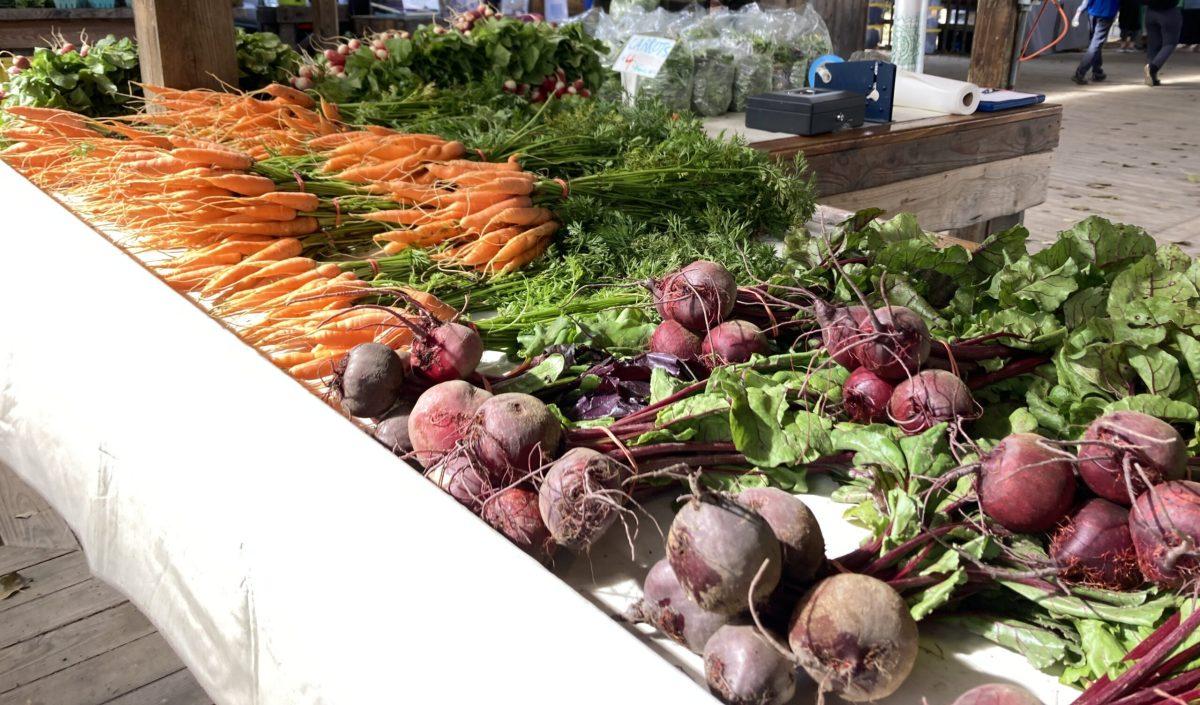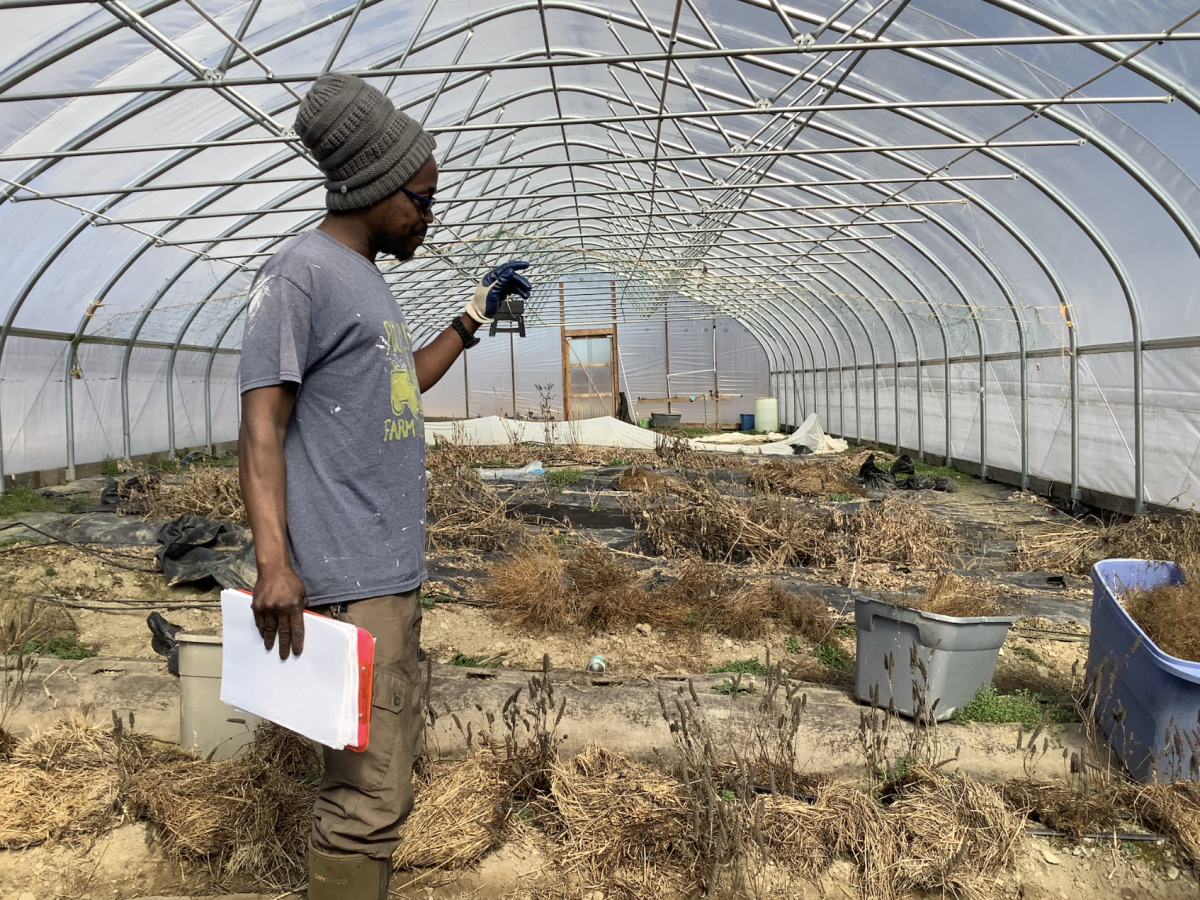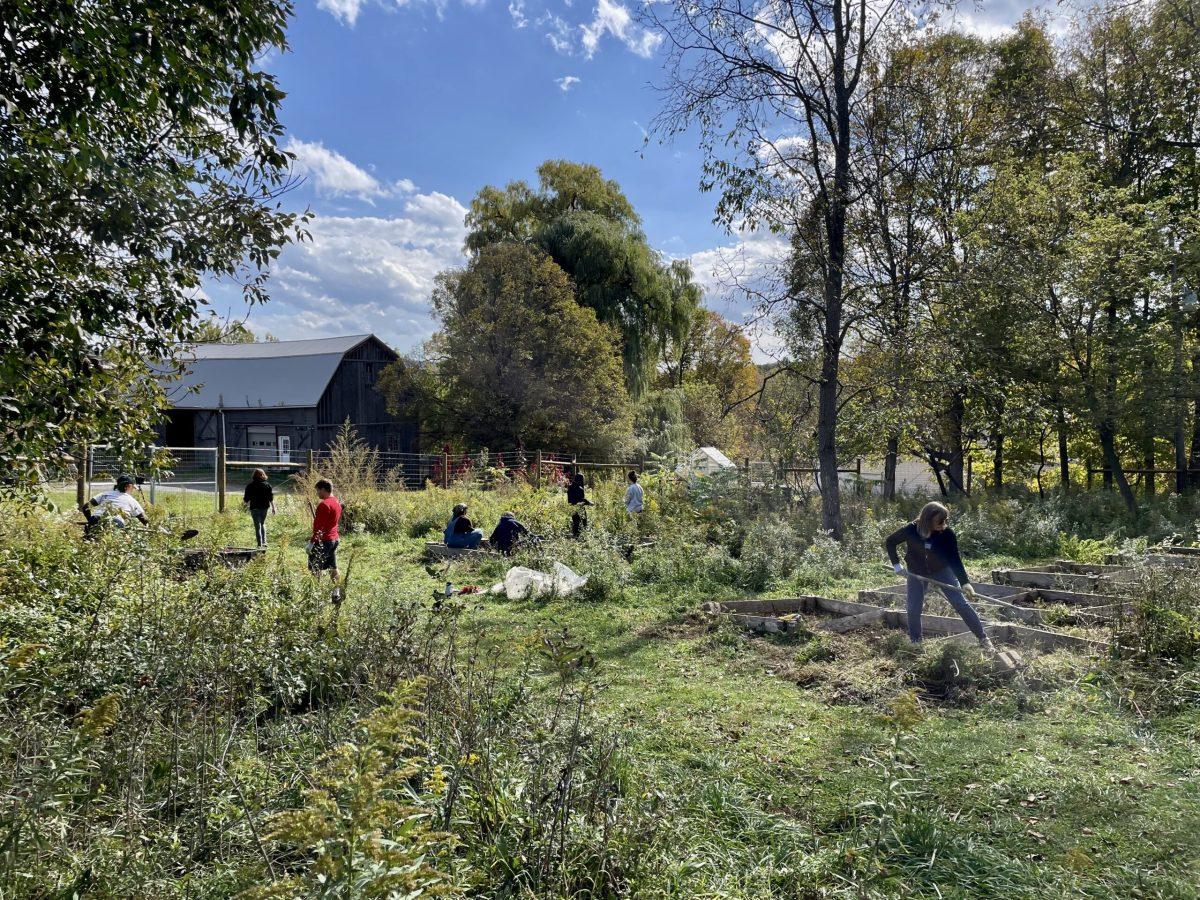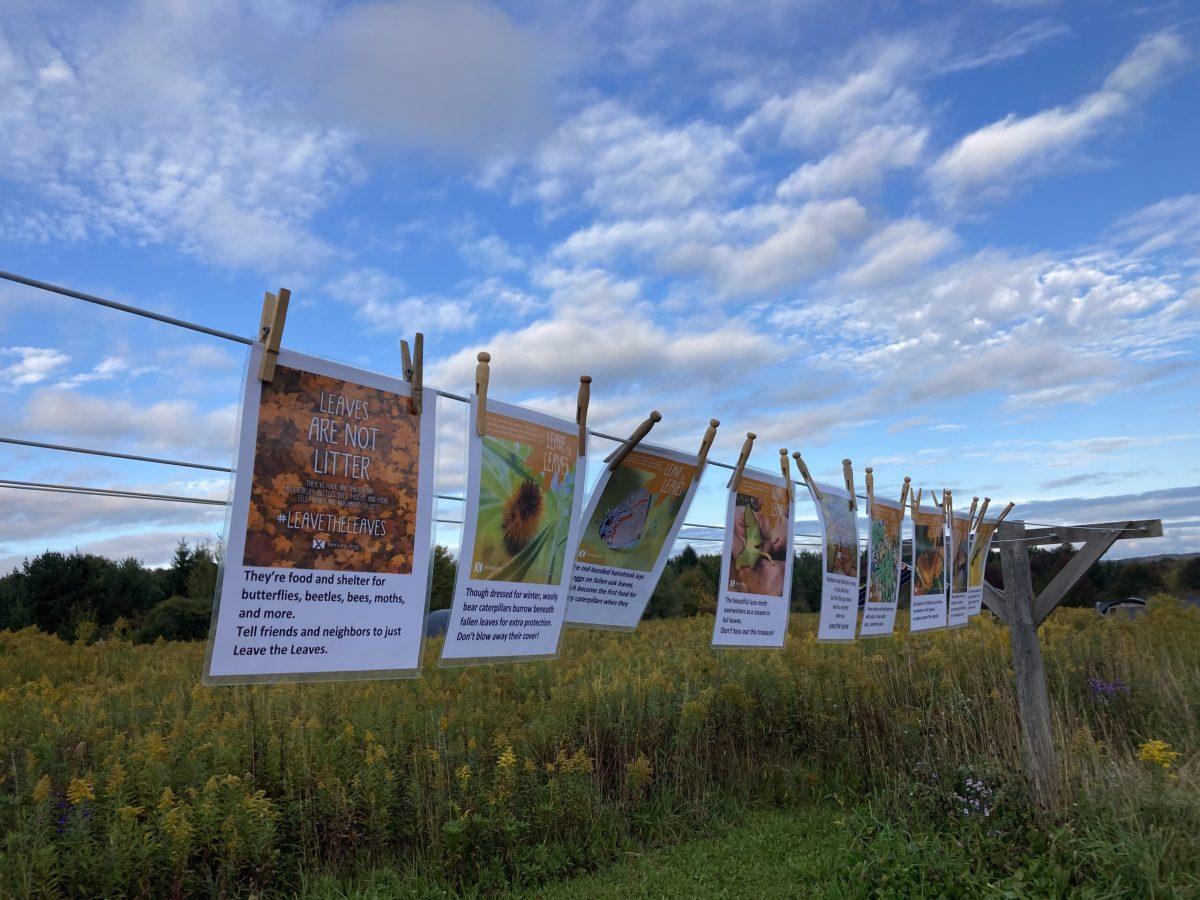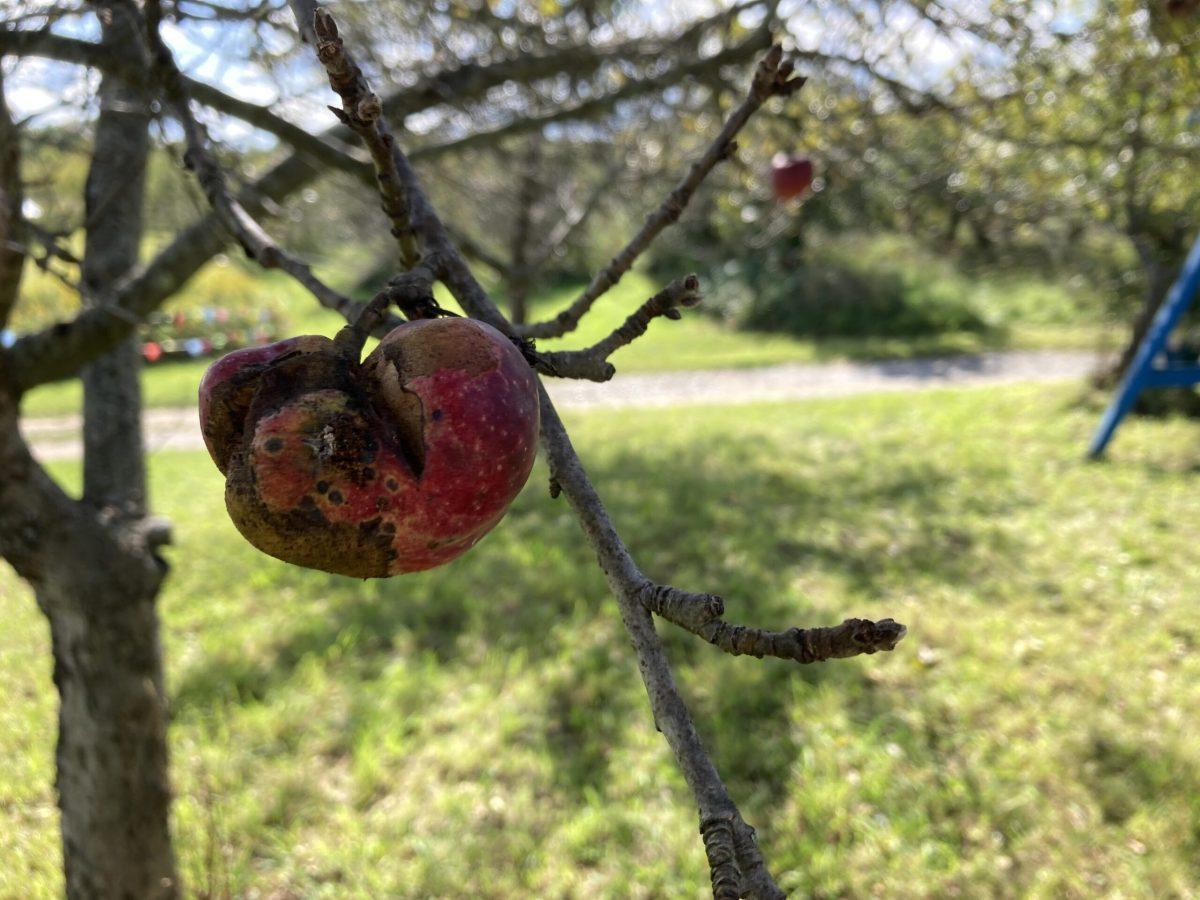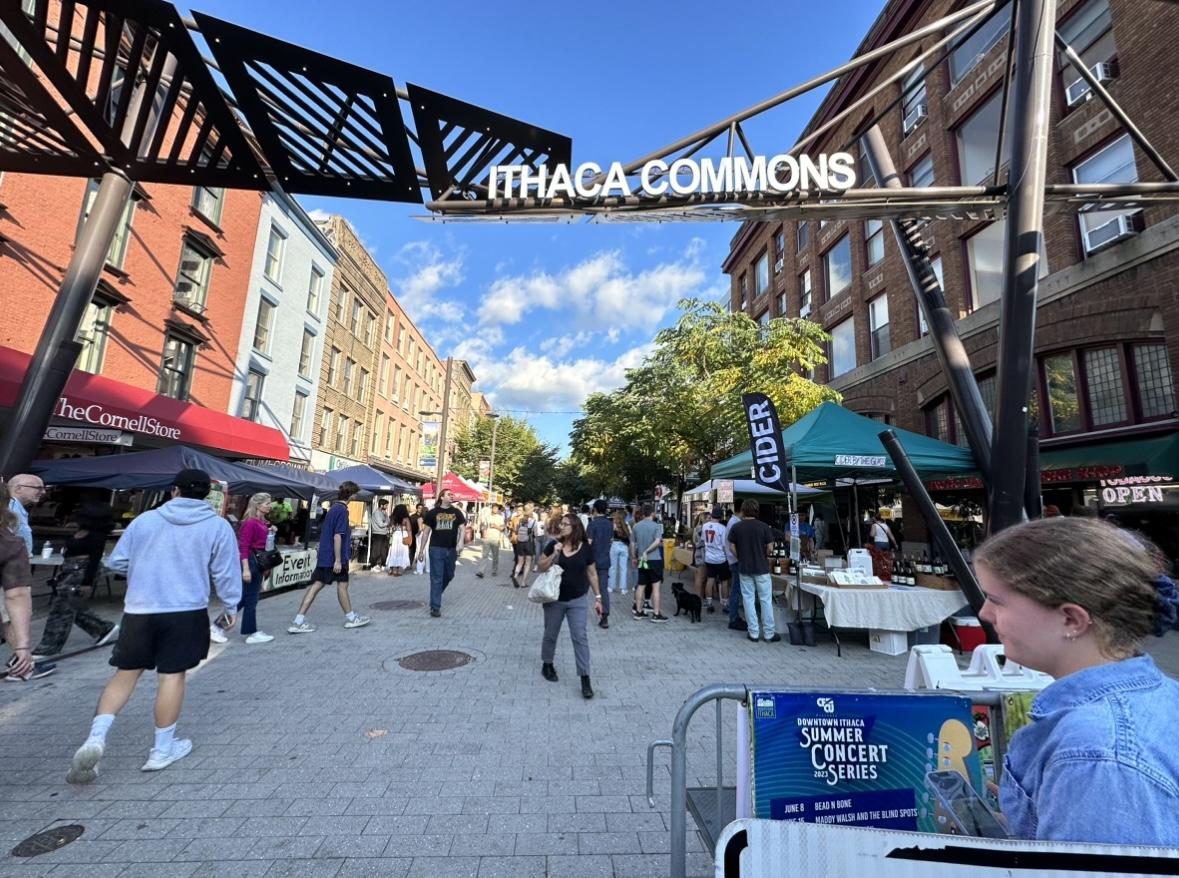What is a Co-op
Key Terms:
- Cooperative business: “A cooperative is an ‘autonomous association of persons united voluntarily to meet their common economic, social and cultural needs and aspirations through a jointly owned and democratically controlled enterprise.’”
- Community Supported Agriculture: Commonly referred to as CSAs, customers agree to support a farm whether the yield is good or bad and get regular shares of the farm’s crop over the course of a season. This supports local business, keeps money in the community and gives the farm a guaranteed customer base.
Cooperative businesses are often managed by members who dictate how the business operates. These members may then elect a board of directors to represent them.
Erbin Crowell, who holds many cooperative business-related titles including executive director of the Neighboring Food Co-op Association, said co-ops generally operate on a not-for-profit model with the ultimate goal of meeting member needs.
“Some people have said if co-ops didn’t already exist, we would be inventing them now because they’re exactly the model that’s needed to build a more democratic and inclusive and sustainable economy,” Crowell said.
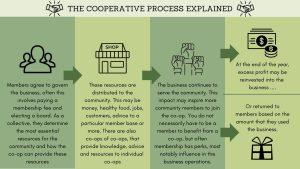
This year’s Co-op Month theme is “Owning Our Identity,” which refers to the ability of co-ops to communicate what’s unique about their business models and how they have taken community needs into their own hands.
Crowell also said many co-ops collaborate closely with CSAs. While CSAs are not the same as co-ops, they also emphasize community and mutual benefits for the suppliers and the consumers.
“They are a similar model in that you’re trying to figure out ways for consumers to come together and support producers in their regions, provide more sustainability, to provide a more stable market and better pricing for them,” Crowell said.
Collaboration between co-ops and CSAs
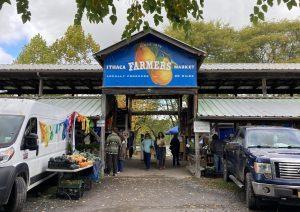
The Ithaca Farmers Market is a staple of the community, it is also a cooperatively-run business. Max Buckner, president of the IFM Board of Directors, said the market has about 150 members and the majority of members are vendors. One of Buckner’s goals as president is to grow the number of community members involved in the market and on the board.
“The thing we like about being a co-op is that it really represents our market community very, very well and it allows our market members to all feel like they have a voice in the market,” Buckner said.
IFM works to support its vendor community and ensure that the broader Ithaca community has access to fresh, local products.
Buckner said all products at the market must be produced within 30 miles of Steamboat Landing where IFM is located. IFM also works with the SNAP program to grant wider access to the market’s products and is hoping to introduce new initiatives to further promote food security.

Nook and Cranny Farm is one of many farms that sells its goods every week at the IFM and uses the market as an opportunity to advertise their CSA program and offer share pickups for patrons. Fionna McSweeney who works for Nook and Cranny, said the CSA is the largest portion of income for the business. Since the CSA shares are often paid for at the beginning of the season, the farm is able to use that money to get things up and running before they are ready to sell harvested goods.
Of the CSA share boxes, McSweeney said “It’s a lot of veggies, my partner works full time here and I work part time and we get a family sized share of veggies each week and we struggle to go through it. We have to get creative.”
The success of GreenStar Food Co-op
GreenStar Food Co-Op is possibly the most well-known food co-op in Ithaca; it has been cooperatively owned since 1971 and currently has 13,000 members.
Instead of focusing on maximizing profit, Jeff Bessmer, general manager at GreenStar, said the co-op model allows the stores to bring local sustainable food to Ithaca and meet members’ needs.
“People want to trust in their food system,” Bessmer said. “There’s lots of greenwashing, lots of kind of bait and switch in the food world and they want someone who on their behalf is out there trying to find real clean products that are reasonably priced, that are tasty, and that support the local economy.”
GreenStar also prioritizes supporting small local businesses and farms. Getting products into GreenStar can be an important stepping stone for new or small businesses, especially for those that cannot meet the demand necessary to sell products in chain stores like Wegmans or Target.
“It’s a way for them to really get enough of a big operation that not only can they be sustainable for themselves and have a good local business, but then over time as they grow in success, they can go to the bigger grocery chains,” Bessmer said.
https://youtu.be/CfsfnO9rQ5g?si=_wmLdGLnmHIG4_yU

